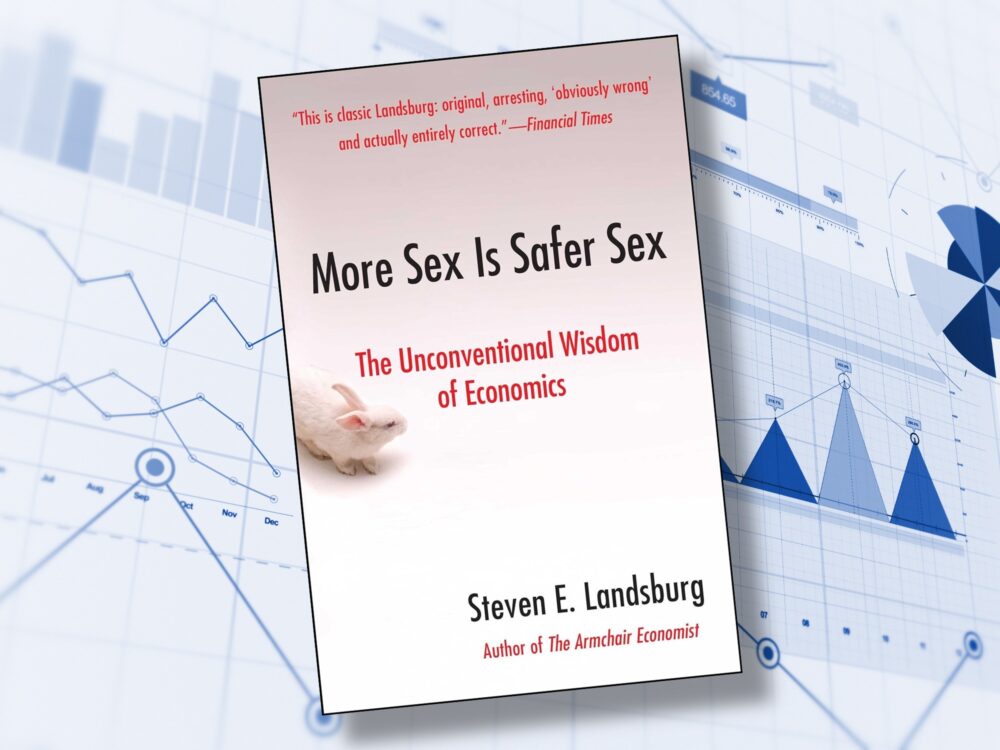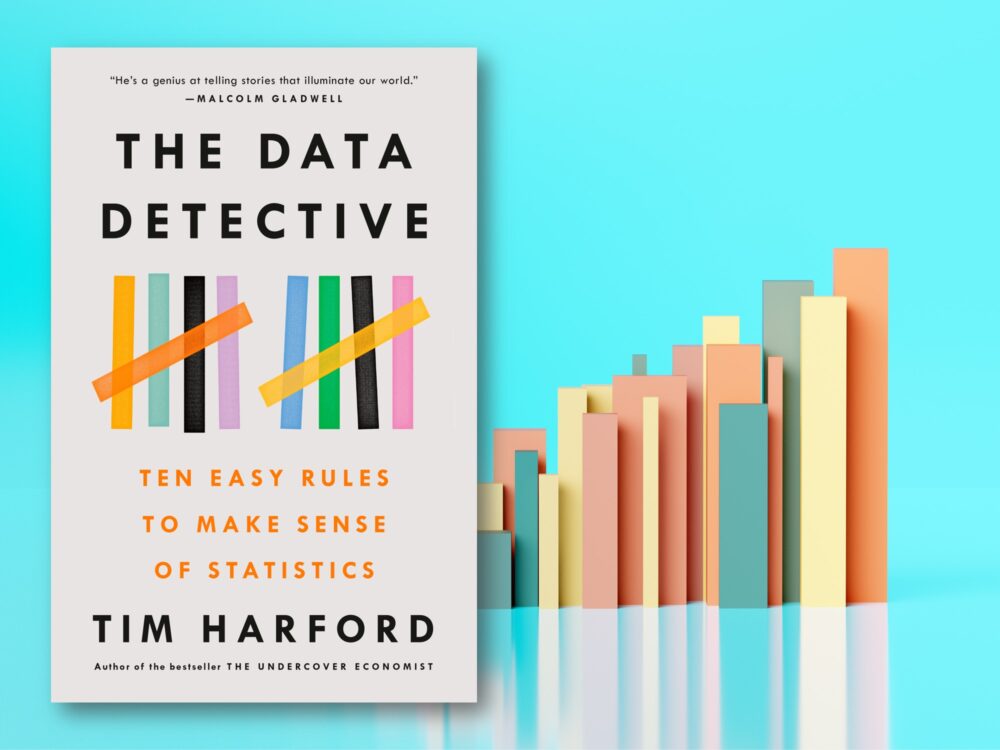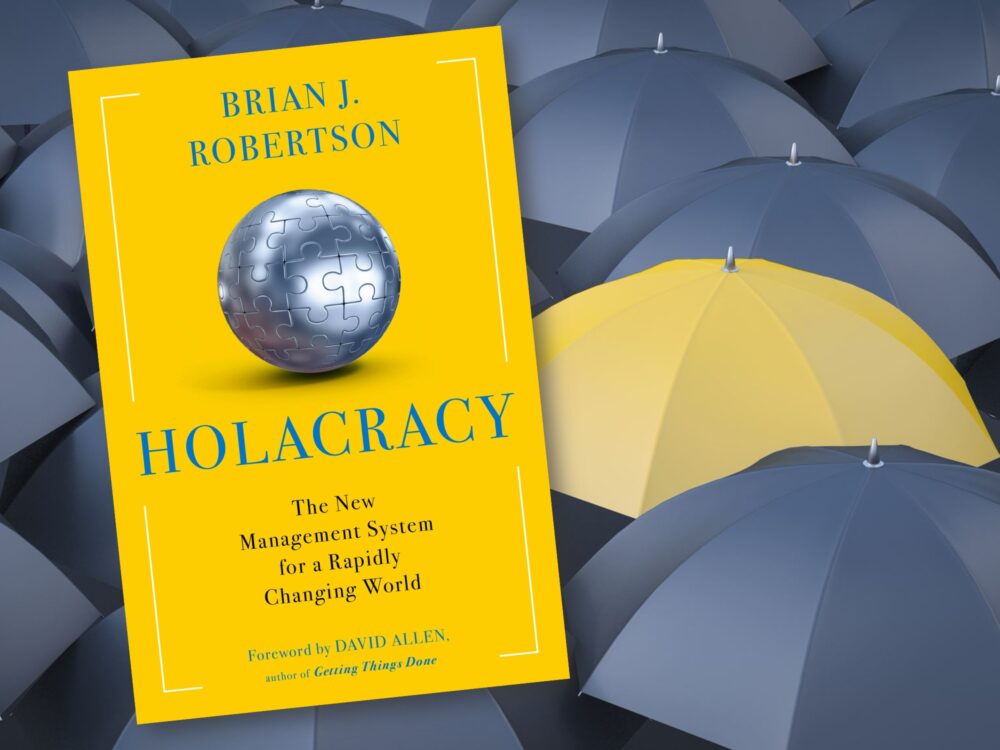Overview
“More Sex Is Safer Sex: The Unconventional Wisdom of Economics” by Steven E. Landsburg is a thought-provoking book that delves into the surprising and often counterintuitive insights of economics. Behind its catchy title lies a serious exploration of how individual rational decisions can lead to collectively irrational outcomes. Landsburg uses a variety of engaging examples to illustrate his points, such as how avoiding casual sex can paradoxically increase the spread of diseases. The book challenges readers to rethink their assumptions and consider the broader implications of their actions.
Landsburg’s work is about understanding human behavior and societal dynamics through an economic lens. He tackles a wide range of topics, from politics and justice to everyday decisions, always with a blend of humour and rigorous logic. By presenting complex economic theories in an accessible and entertaining manner, the book invites readers to see the world in a new light and sparks debate on many issues we often take for granted.
Synopsis
The various chapters of the book can be summarised as follows:
Part I: The Communal Stream
- More Sex Is Safer Sex
This chapter explores the counterintuitive idea that increasing the number of sexual partners among the more cautious individuals in society can actually reduce the overall spread of sexually transmitted diseases. Landsburg argues that when cautious people engage in more sexual activity, they dilute the pool of potential partners, making it safer for everyone. - Be Fruitful and Multiply
Landsburg discusses the economic implications of population growth, suggesting that having more children can lead to greater innovation and economic prosperity. He challenges the common belief that overpopulation is inherently problematic, instead highlighting the benefits of a larger, more diverse population. - What I Like About Scrooge
In this chapter, Landsburg defends Ebenezer Scrooge’s frugality, arguing that saving money and investing it wisely can benefit society as a whole. He explains how Scrooge’s behavior, often seen as miserly, actually contributes to economic growth and stability. - Who’s the Fairest of Them All?
This chapter examines the concept of fairness in economic transactions. Landsburg uses various examples to illustrate how what is perceived as fair may not always lead to the most efficient or beneficial outcomes. He encourages readers to reconsider their notions of fairness in the context of economic efficiency - Children at Work
Landsburg tackles the controversial topic of child labor, arguing that in some cases, allowing children to work can be beneficial for their families and communities. He presents evidence that, under certain conditions, child labor can lead to better economic outcomes and improved living standards.
Part II: How to Fix Everything
- How to Fix Politics
Landsburg suggests that many political problems stem from the misalignment of incentives. He proposes solutions such as implementing more direct democracy and using economic principles to design better voting systems that align politicians’ incentives with the public good. - How to Fix the Justice System
This chapter explores the inefficiencies and injustices within the legal system. Landsburg advocates for reforms that would make the system more efficient and fair, such as better aligning punishments with the severity of crimes and using economic incentives to reduce crime rates - How to Fix Everything Else
In this comprehensive chapter, Landsburg addresses a variety of societal issues using economic principles:- How to Fight Fires
He suggests market-based solutions for fire prevention and response, such as insurance incentives for fireproofing homes. - How to Fight Crime
Landsburg argues for economic incentives to reduce crime, such as rewarding good behaviour and creating economic opportunities for potential offenders. - How to Prevent Accidents
He discusses the role of liability and insurance in reducing accidents, advocating for policies that make individuals and companies more accountable for safety. - How to Fight Pollution
Landsburg supports market-based approaches like carbon trading and pollution taxes to reduce environmental harm. - How to Solve the Kidney Shortage
He proposes legalising the sale of kidneys to create a market that would increase supply and save lives. - How to Fight Grade Inflation
Landsburg suggests using standardised testing and other objective measures to combat grade inflation in education - How to Shorten Waiting Lines
He explores the use of pricing and other economic tools to manage demand and reduce waiting times in various contexts.
- How to Fight Fires
Part III: Everyday Economics
- Go Figure
This chapter delves into the importance of understanding and interpreting statistical data correctly. Landsburg emphasizes how misinterpretations can lead to flawed conclusions and poor decision-making. He illustrates this with various examples, showing how a proper grasp of statistics can reveal surprising truths and debunk common misconceptions. - Oh No! It’s a Girl!
Landsburg examines the economic and social implications of gender preferences, particularly in societies where boys are favoured over girls. He discusses the long-term consequences of such biases, including demographic imbalances and their impact on the economy. The chapter highlights how these preferences can lead to unintended and often detrimental outcomes. - The High Price of Motherhood
This chapter explores the economic costs associated with motherhood, both for individuals and society. Landsburg discusses how traditional gender roles and expectations can lead to significant financial and career sacrifices for women. He also examines policies that could help mitigate these costs and promote greater gender equality in the workforce.
Part IV: The Big Questions
- Giving Your All: A Defense of Pure Reason
Landsburg argues for the importance of rational thinking and pure reason in decision-making. He defends the idea that logical, evidence-based approaches can lead to better outcomes in both personal and societal contexts, challenging the notion that emotional or intuitive decisions are inherently superior. - The Central Banker of the Soul
This chapter explores the concept of moral accounting, comparing it to financial accounting. Landsburg discusses how individuals balance their moral “ledgers” and make decisions based on perceived moral debts and credits, drawing parallels to the role of a central banker in managing a nation’s economy. - How to Read the News
Landsburg provides a guide to interpreting news stories through an economic lens. He covers various topics such as racial profiling, disaster relief, global warming, trade deficits, outsourcing, and racism. He emphasises the importance of critical thinking and understanding the economic principles behind the headlines to avoid being misled by sensationalism or bias. - Matters of Life and Death
This chapter addresses the ethical and economic considerations surrounding life-and-death decisions. Landsburg discusses topics such as capital punishment, euthanasia, and healthcare rationing, arguing that economic analysis can provide valuable insights into these complex moral issues. - Things That Make Me Squirm
Landsburg reflects on various uncomfortable truths and paradoxes in economics. He discusses topics that challenge conventional wisdom and provoke discomfort, encouraging readers to confront and reconsider their deeply held beliefs about economics and society.
Why you should read it?
“More Sex Is Safer Sex: The Unconventional Wisdom of Economics” by Steven E. Landsburg is an intriguing and important read because it challenges conventional thinking and encourages readers to view the world through the lens of economic principles. Landsburg’s ability to present complex economic theories in an accessible and often humorous manner makes the book engaging and thought-provoking. By using real-world examples and counterintuitive arguments, he invites readers to question their assumptions and consider the broader implications of their actions.
While you may not agree with all of Landsburg’s statements, and some of his unconventional ideas can seem extremely bumpy or even controversial, the book’s value lies in its ability to provoke critical thinking and debate. Exploring different points of view, even those that challenge our deeply held beliefs, is essential for intellectual growth and understanding. Landsburg’s work encourages readers to think beyond the surface and consider the underlying economic forces at play in various aspects of society.
Critics and review
When “More Sex Is Safer Sex: The Unconventional Wisdom of Economics” was published, it garnered significant attention from both the general public and the professional community. The book’s provocative title and unconventional ideas sparked curiosity and debate among readers. Many appreciated Landsburg’s ability to present complex economic concepts in an engaging and accessible manner, making economics interesting and relevant to everyday life. The book was praised for its wit and the way it challenged readers to rethink their assumptions about various societal issues.
In the professional community, the reception was more mixed. While some economists and academics lauded Landsburg for his innovative approach and thought-provoking arguments, others criticised the book for its sometimes controversial and counterintuitive claims. Critics argued that some of Landsburg’s proposals, such as legalising the sale of kidneys or suggesting that more sex could reduce the spread of diseases, were overly simplistic or ignored important ethical considerations. Despite these criticisms, the book succeeded in stimulating discussion and encouraging a broader audience to engage with economic ideas, solidifying Landsburg’s reputation as a provocative and influential thinker in the field.
Verdict
“More Sex Is Safer Sex: The Unconventional Wisdom of Economics” by Steven E. Landsburg is a fascinating and thought-provoking read that successfully makes complex economic concepts accessible and engaging. The book’s strength lies in its ability to challenge conventional wisdom and encourage readers to think critically about societal issues through an economic lens. However, it’s important to note that those who are uncomfortable with questioning traditional economic ideas might find some of Landsburg’s arguments shocking or controversial.
About the authors
Steven E. Landsburg is a distinguished professor of economics at the University of Rochester, where he has made significant contributions to the fields of mathematics, economics, and philosophy. He is the author of several influential books, including “The Armchair Economist,” “Fair Play,” and “The Big Questions,” in addition to “More Sex Is Safer Sex.” Landsburg has published over 30 journal articles and two textbooks on economics, showcasing his expertise and dedication to advancing economic thoug. His research interests span a wide range of topics, including algebraic K-theory, quantum game theory, and the philosophy of science.
In addition to his academic work, Landsburg is well-known for his engaging and often provocative articles in Slate magazine, where he wrote the “Everyday Economics” column from 1996 to 2007. These articles provided the foundation for many of the ideas explored in “More Sex Is Safer Sex.” Through his writing, Landsburg has reached a broad audience, making complex economic concepts accessible and sparking debate on various societal issues.








Leave a Reply